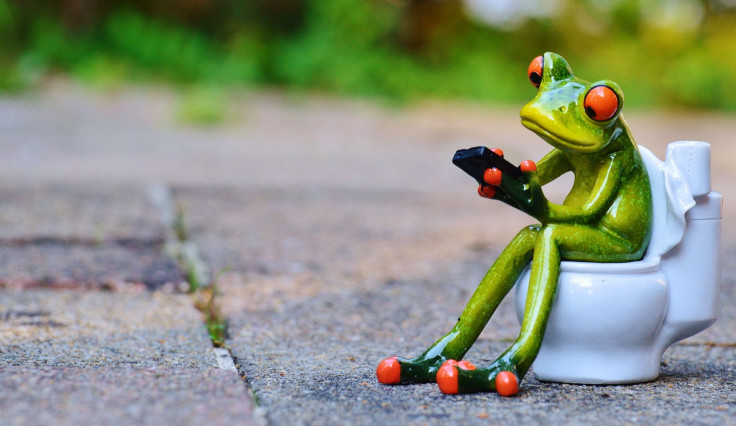Researchers Call For More Fecal Transplant Donors, Believe Personalized Samples Key To Success

Everyone’s heard of heart transplants, lung transplants, and liver transplants — but what about poop transplants? This procedure, formally known as a fecal microbial transplant (FMT), both exists and saves lives. While some cases of FMT have been successful, others have been less so. So scientists from the European Molecular Biology Laboratory decided to look at how FMT affects patients in order to find a way to improve its success rate. They came to an important conclusion: more donors, meaning more personalized samples, would make a difference.
FMT is used to treat chronic gastrointestinal infections caused by Clostridium difficile bacteria. These infections are often debilitating and sometimes even fatal, which is due in part to the fact they're often drug resistant. This is where FMT comes in: The patient’s gut is “seeded” with healthy microbes from donors’ fecal matter, sparking competition between good and bad bacteria in order to weed out the bad bugs. The Washington Post argues the procedure is "the most successful effort to hack the microbes that live in and around us (known as our microbiome or microbiota) to date."
As you can imagine, the donor selection process is a long and rigorous one. Companies screen potential donors for a list of disqualifying factors, including obesity, antibiotic use, drug use, recent tattoos, and more. Labs are experimenting with ways to make the process both easier and more palatable, finding new ways to store and ship the samples. One study found that frozen samples work as well as fresh, and some researchers are testing frozen oral capsules as a delivery method, an alternative to the current practice of using rectal or nasal tubes to deliver the sample. Researchers are still working to discover what the perfect gut microbiome looks like — if it even exists.
“Ultimately, the goal is to move from a stool transplant to something more manageable, such as a pill,” first study author Simone Li said in a statement. “Our work shows that this is likely going to be a personalized bacterial cocktail, rather than a one-size-fits-all solution.”
Li and her team analyzed bacterial samples from 5 FMT patients both before and after their treatment. They also looked at stool samples from their donors and five other patients who received a placebo treatment. The researchers examined not only the species of bacteria present, but the different strains since some bacteria have subtypes that are perfectly safe and others that can be dangerous.
“Until now, we could only look at what species of microbe establish themselves in (or disappear from) a patient’s gut after FMT, but we couldn’t draw any conclusions about species that a patient had before and after the transplant: We had no way of knowing if those microbes were still the patient’s or if they came from the donor,” co-lead researcher Peer Bork told the Post. “Now that we can track strains, we can make that distinction.”
Bork said the big finding is really that we have a lot to learn about what actually happens when we transplant stool. The researchers were surprised at how many strains of a patient’s own bacteria remained after donor strains set up shop, in addition to the fact donated bacteria was much more likely to stay if another member of the species was already in the recipients' microbiome. Bork said there is no such thing is a perfect poop donor; Good health is always important, but the best donor may depend on the individual patient.
“There is no super donor, but important is a kind of donor-recipient ‘compatibility,” Bork said, “again suggesting more personalized approaches.”
Source: Li S, Zhu A, Benes V, Costea P, Hercog R, Hildebrand F, et al. Durable Coexistence of Donor and Recipient Strains After Fecal Microbiota Transplantation. Science. 2016.



























